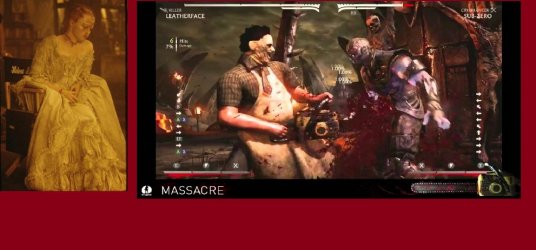Abishai100
VIP Member
- Sep 22, 2013
- 4,967
- 252
- 85
In the provocative but controversial 1995 David Fincher crime-thriller film Se7en, two detectives study the writing in The Canterbury Tales (Geoffrey Chaucer) to understand the mind of a killer who seems interested in citing classic works in leaving intellectual footprints to his bizarre Christianity-oriented punishment-themed crimes.
Modern cinema seems to focus on special 'links' between the value of language and communication and the intelligibility of classical education. Perhaps because the modern age 'colloquializes' philosophy and politics (e.g., celebrity, cyber-warfare, etc.), there is interest in making the distribution and transmission of classical literature more 'convenient.'
You can find audiobooks and nice youth-friendly claymation adaptation films of Chaucer on YouTube, which invites educators to ask, "Should classical literature be presented with modern media (e.g., Internet uploaded recordings)?"
Here, for example, is a sample 'populism-education conversation' about the modern accessibility of Chaucer between the American comic book 'anti-hero' Deadpool (Marvel Comics) and the American comic book 'super-villain' Carnage (Marvel Comics).
The point of this 'mock dialogue' is to highlight the new age interest in 'intellectualism colloquialization' and invite comments about the intellectual desirability of literature adaptability.
====
DEADPOOL: The mini-stories in The Canterbury Tales make me wistful.
CARNAGE: You're talking gibberish about mob psychology!!!
DEADPOOL: No, no. Chaucer is all over YouTube, so any maniac can learn.
CARNAGE: There are too many vigilantes out there for education to be 'classy.'
DEADPOOL: We can accent the Middle English classics with water-guns.
CARNAGE: Very funny, but kids look up to criminals.
DEADPOOL: True, but kids also appreciate the friendly cop!
CARNAGE: Chaucer's ethics lean towards the masses!!!
DEADPOOL: Mob psychology is assuaged by the Internet.
CARNAGE: Education should not be corrupted by traffic.
DEADPOOL: There's nothing immortal about YouTube.
CARNAGE: Defend your claims at the Smithsonian.
====
The Canterbury Tales (Wikipedia)
Modern cinema seems to focus on special 'links' between the value of language and communication and the intelligibility of classical education. Perhaps because the modern age 'colloquializes' philosophy and politics (e.g., celebrity, cyber-warfare, etc.), there is interest in making the distribution and transmission of classical literature more 'convenient.'
You can find audiobooks and nice youth-friendly claymation adaptation films of Chaucer on YouTube, which invites educators to ask, "Should classical literature be presented with modern media (e.g., Internet uploaded recordings)?"
Here, for example, is a sample 'populism-education conversation' about the modern accessibility of Chaucer between the American comic book 'anti-hero' Deadpool (Marvel Comics) and the American comic book 'super-villain' Carnage (Marvel Comics).
The point of this 'mock dialogue' is to highlight the new age interest in 'intellectualism colloquialization' and invite comments about the intellectual desirability of literature adaptability.
====
DEADPOOL: The mini-stories in The Canterbury Tales make me wistful.
CARNAGE: You're talking gibberish about mob psychology!!!
DEADPOOL: No, no. Chaucer is all over YouTube, so any maniac can learn.
CARNAGE: There are too many vigilantes out there for education to be 'classy.'
DEADPOOL: We can accent the Middle English classics with water-guns.
CARNAGE: Very funny, but kids look up to criminals.
DEADPOOL: True, but kids also appreciate the friendly cop!
CARNAGE: Chaucer's ethics lean towards the masses!!!
DEADPOOL: Mob psychology is assuaged by the Internet.
CARNAGE: Education should not be corrupted by traffic.
DEADPOOL: There's nothing immortal about YouTube.
CARNAGE: Defend your claims at the Smithsonian.
====
The Canterbury Tales (Wikipedia)
